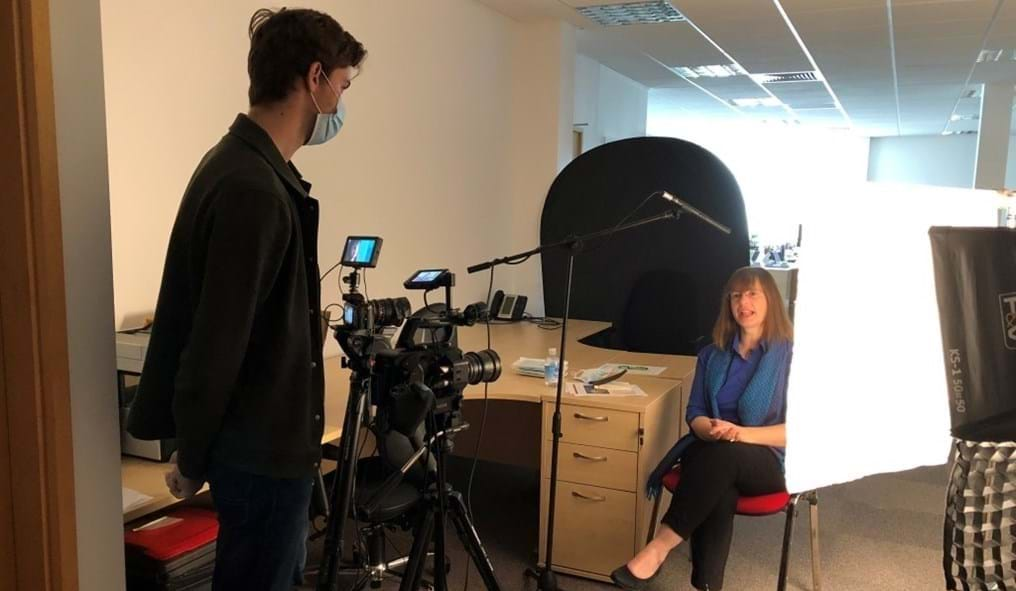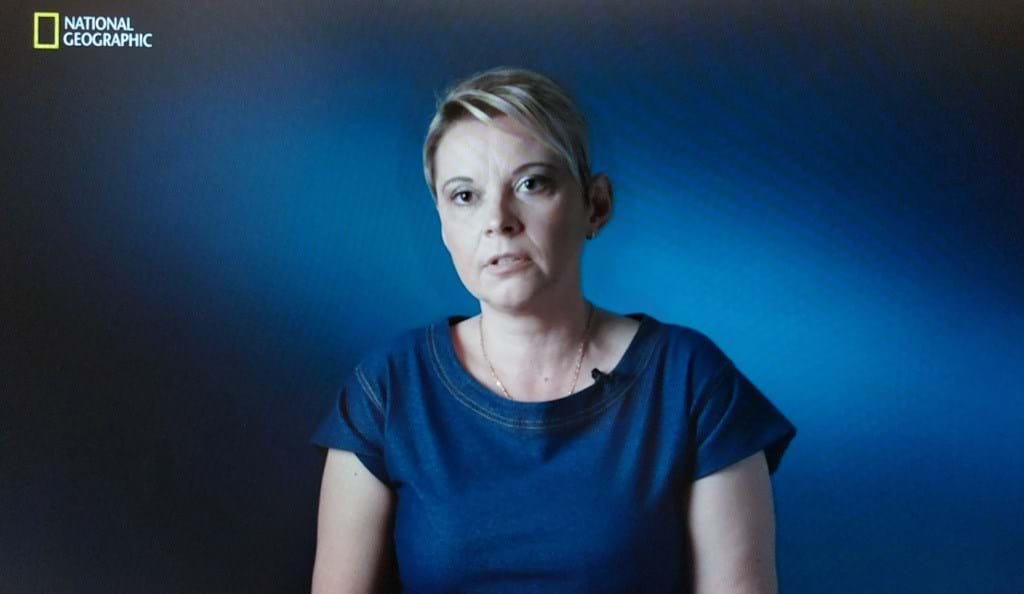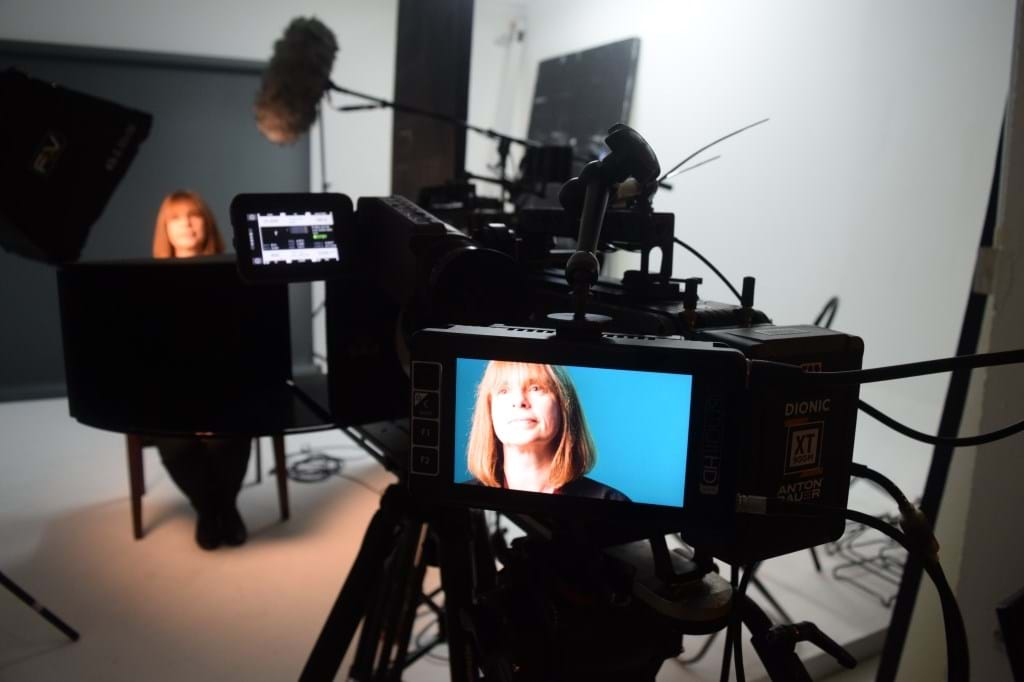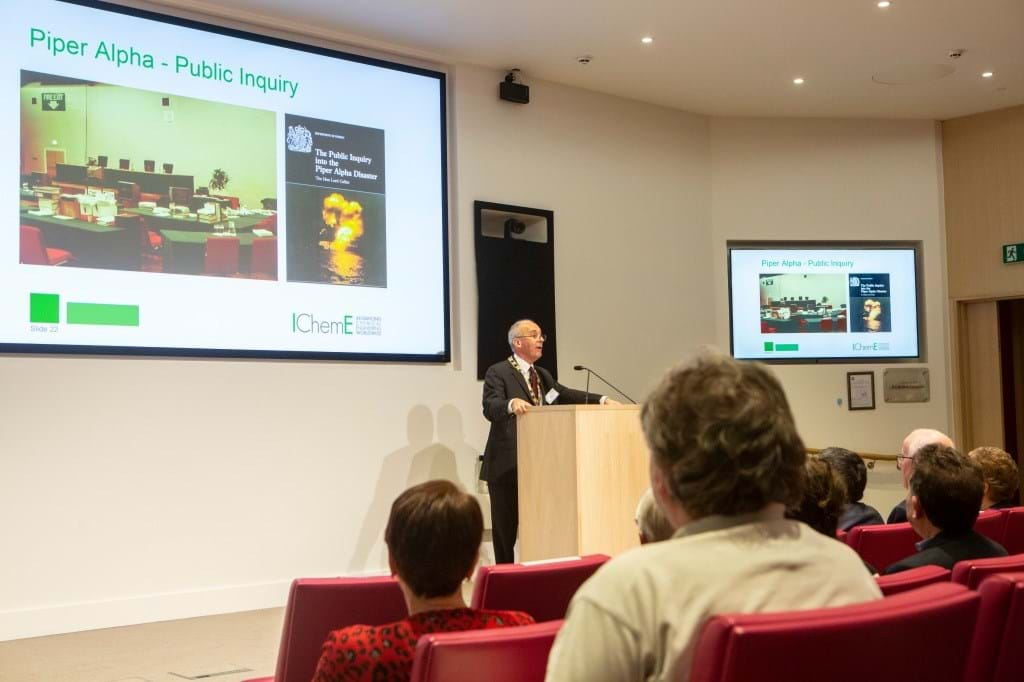Behind the scenes: interviews for a TV documentary on engineering

27th January 2022
Six IChemE members recently featured in the second series of TV documentary series, Disasters Engineered.
Aired on the National Geographic channel, the documentary examined various chemical, structural, and mechanical engineering incidents. Each episode looked at the causes of two incidents, why and how they happened, how they affected people, and what changes have been made in the industry as a result.
So, we caught up with three of the members - Zsuzsanna Gyenes, Fiona Macleod and Stephen Richardson - to understand how they felt to be part of the series, and why they feel it is important for the public to see chemical and process engineers giving expert accounts of safety incidents.

Name: Zsuzsanna Gyenes
Role: Deputy to the Director of the IChemE Safety Centre (ISC)
Bio: Zsuzsanna has extensive experience in disaster management with previous roles including Head of Section for Nuclear Safety at the National Directorate General for Disaster Management in Budapest, and Scientific Technical Officer for the European Commission Joint Research Centre in Italy. At the ISC she works with industry and academia sharing knowledge, developing guidance materials and communicating good practice to improve process safety worldwide.
Incident interviewed on: Fukushima Daiichi Nuclear Power Plant failure
How did it feel to be part of the documentary and how did this differ from your public speaking about incidents as part of your current role with the IChemE Safety Centre?
Through my previous jobs and in my current role with the ISC, I am used to public speaking, running training sessions and organizing workshops for international audiences across the globe.
Yet, over two decades of extensive experience could not prepare me entirely for the novelty of being part of a documentary. I could associate it with the feeling at my final exams at university. An overall test of knowledge about the topic. I had my notes with me prepared and I gathered my thoughts around not only the accident itself but basically everything related to process safety, disaster management and what might be of interest to the audience to hear. (My overall knowledge and expertise.)
Yet, when the recording started, all cameras and lights on me, for a moment I suddenly felt my mind went blank and I knew nothing about Fukushima, nor Natech events. It was a very new experience as I had to speak more slowly and explain a lot of technical details in a way that it would be easy to understand by the general audience. I am used to speaking in front of experts in the field and as such, the communication style was quite different for the documentary. I had to be very careful not to use - or fully explain - acronyms, such as Natechs, which stands for natural disasters triggering technological events. Or give more context to statistics, for example explaining the country’s annual nuclear waste production as the same size of a football stadium.
Those of you who know me well, know I cannot sit still for more than half an hour! Sitting there on a not so comfortable chair for more than two hours itself meant a great challenge. I was conscious of maintaining a good posture, to limit hand gesturing to avoid distracting from the points I was making, and keeping the storytelling factual because I wouldn’t want to state something that might be politically or scientifically sensitive as it could cause an issue. I had no visual aids; just a curious pair of eyes behind the obligatory facemask from the filming partner, all which made it, well, a bit of stressful scenario and quite a challenge to perform well.
My mind blanking was a scary, but fortunately fleeting, moment as the recording team helped me to feel at ease. In the end I truly enjoyed the filming.

Why do you feel it’s important for chemical and process engineers’ technical expertise to be recognised in the public?
People are somewhat engaged with their daily life, routine and their closest environment, which is normal as they have errands to run, family and work life to balance. At the same time, it is very important to reflect on the wider picture surrounding us at a national and even international level. That includes becoming familiar with the latest scientific findings or technical events occurring in the world.
Fukushima was one of those high visibility events that one just cannot easily forget or overlook. The devastating effects of the Tohoku earthquake and the following tsunami themselves were a big hit on the people not only at local level but it shocked the entire world, and the nuclear event on the top of these catastrophes was the worst we could have possibly imagined. The Fukushima disaster had a significant impact worldwide which initiated a lot of change in the nuclear arena, a lot of technological improvement and worldwide stress tests completed in nuclear power plants contributed to make these hazardous sites safer. Public recognition of this incident and learnings from it are crucial.
Seeing this documentary may trigger some thoughts in young people to direct their focus in learning about nuclear power or writing a dissertation on Natech’s and their predictability or even develop new tools that advance process safety.
I, for example, took this path toward process safety as a direct impact from watching some old documentary series, Seconds from Disaster and Air Crash Investigations, on the National Geographic channel. And now it is a real privilege to see myself in one of their documentaries.

Name: Fiona Macleod
Role: Managing Director of Lynemouth Power; and Chair of IChemE’s Loss Prevention Bulletin (LPB) editorial panel
Bio: Fiona has more than 35 years in the international chemical industry managing high hazard chemical sites. An active volunteer with IChemE, one of her roles includes Chair of the LPB and works with leading authors and editors to produce the publication, which is a 45-year archive of process safety case studies sharing lessons learned from incidents.
Incidents interviewed on: Piper Alpha oil and gas platform explosion and the Flint water crisis
You returned for the second series of the documentary, can you give a comparison of how your experience and participation differed in series 1 and 2?
In series 1, I was interviewed on the tragedies of the Chernobyl nuclear explosion in Ukraine; the gas leak in Bhopal, India; the explosions at the port in Tianjin, China and at the Evangelos Florakis naval base in Cyprus. I've visited Bhopal and Chernobyl and written about the accidents in the Loss Prevention Bulletin (you can access the articles in Issue 240 and Issue 251). I also consulted my colleagues on the LPB and shared the knowledge I’d gained.
For series 2, I was asked to talk about the Piper Alpha oil and gas platform explosion off the Scottish coast and the lead-poisoned water crisis in Flint, USA.
I had never done this sort of TV appearance before, so I was a little anxious the first time. For series 1 I went to a recording studio in London, but for series 2 the film crew came to my workplace in Teesside (as pictured in the headline feature image), which meant the time commitment was two hours rather than two days and I was much more at ease.
The first series was edited with a voice-over linking the witness and expert clips with a narrative that is arguably over simplified. The second series is edited in a way to allow the story to unfold through film clips and interviews, a style I prefer.

Why do you feel it’s important for chemical engineers, process engineers and process safety engineers to continue to share real-life stories of past incidents?
Communicating technical material to a non-specialist audience is fraught with danger. Everything that looks obvious with hindsight, was not necessarily so clear-cut at the time. If you don't have control of the edits, there is a real danger your words can be taken out of context. In attempting to explain complexity, you risk appearing a heartless monster, defending the indefensible.
If we don't try, if we don't explain that there are no new accidents, that there are rarely single or simple causes, that all human activity involves balancing risk and sometimes it goes terribly, horribly wrong, we risk repeating our mistakes.
Can we prevent accidents? Absolutely! By examining the accidents and near misses of the past we learn the lessons that others paid such a high price to teach us. Good safety practice can degrade over time, that's why we have to keep telling the stories of things that went wrong. People remember stories.

Name: Stephen Richardson
Role: Emeritus Professor of Chemical Engineering at Imperial College London; and Past President of IChemE
Bio: With almost 40 years’ experience teaching chemical engineering and researching depressurisation of high-pressure hydrocarbon systems, Stephen has become a process safety expert and sought upon for investigating and giving evidence for major process accidents in the oil and gas industry.
Incident interviewed on: Piper Alpha oil and gas platform explosion
Can you give us a brief behind the scenes description of what it was like to be filmed for this documentary series?
I was interviewed on television on the day after the Cullen report into the Piper Alpha disaster was published, so I knew roughly what to expect. This time I felt more at ease because I’d given many talks on Piper and felt more confident about presenting the key information that I felt mattered, explaining the technical details of the oil platform and the issues that led to the incident, as well as the human impact.
The interviewer was extremely professional and the cameraman completely unobtrusive, so it felt like having a conversation. The only difference was that Covid restrictions meant that we sat further apart than normal.

Why do you feel it is important that chemical engineers, and engineers more broadly, participate in documentaries such as these when the opportunity is presented?
Trevor Kletz often noted that we forget the lessons we’ve learnt. Piper Alpha is no exception, but the lessons aren’t just for engineers. Such disasters transcend boundaries and affect many areas, like the law and insurance. So, I think engineers in general, and chemical engineers in particular, should take every opportunity to ensure that the lessons are not forgotten. The 167 men who died on Piper deserve no less.
